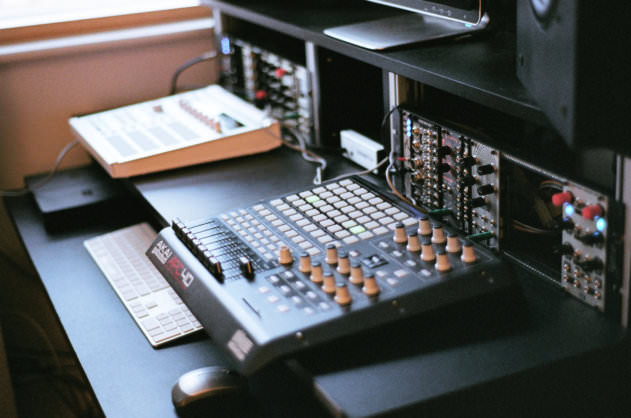
To go back to what you were saying about your RBMA radio show and your obsession with finding new music, is the show based on what you’re listening to each month or do you have to plan it a bit further in advance?
Sometimes I plan shows for months. I’ve just done one on King Tubby for next month and it was such a huge, huge catalogue to go through. Often you’ll get the same track with different titles. It was a minefield.
How did you first get involved with RBMA?
I’d already lectured for them and been involved in a concert performance, then when they started the online station they approached a few people and I’m proud to say I’m the only one left from the original hosts. It’s one of the best things that I’m involved with, to be honest. The whole academy’s just brilliant. So many amazing producers have come out of it. Flying Lotus, Nina Kraviz, all those people.
What does it bring to the table for you as an established artist?
Imagine a corporation with the kind of financial backing that Red Bull have but for once they’re doing the right thing and saying, ‘We’re not going to get involved in that. We’re just handing control over to people who love that side of things.’ They’ve effectively just given cart blanche to these amazing people who just live and breathe music, and they get to make the decisions. That hardly ever happens in corporate sponsorship, does it?
I just love the whole ethos of it. There’s a lesson to be learnt for corporations there: don’t get involved in things you don’t know anything about, but if you really want to do something artistic give control to people who are passionate about that stuff. The guys I deal with are just fantastic people to work with.
I just love the whole ethos of the Red Bull Music Academy. There’s a lesson to be learnt for corporations there.
As far as your own music goes, tell us about your studio setup. It’s obviously very different to what you had back in 1990.
I generally change my studio around completely every four or five years. I get very inspired by equipment so I’m buying and selling all the time. It also prevents you becoming stuck in a rut or having formulas and templates. It really throws you, so your music has to be reinvented.
I’ve had so much equipment come through, but I’ve got a general philosophy of what I like to use. I don’t like vintage gear. I’ve had so much vintage gear and it always goes wrong. I’m always making music and I can’t afford the downtime that comes with the whole maintenance issue.
I’ve been into modular synths since about 1998. I had a Doepfer and Serge system to begin with. You don’t get any presets so every sound is totally unique to you, and once you unpatch it that’s it, you’ve pretty much lost that sound.
It’s a good motivational tool for learning how to construct sounds from scratch.
That’s a very important thing, yeah. You literally have to learn that this is an oscillator, that goes into a filter, the filter has to be opened by an envelope, another envelope opens your VCA…
What I’m doing now is basing the whole studio around three modular systems that I’m putting together. The system on the left-hand side of the desk’s going to be the main synthesiser voice, with an oscillator, a noise source, envelopes, LFOs, a VCA and the O’Tool oscilloscope for troubleshooting.
The system on the right’s going to be a drone machine. The Dronebank by Snazzy FX creates five pitches, so you can build up five-note chords. One of the most popular Reaktor ensembles is called Akkord. It’s a dream for classic techno chords. So what I’m doing is creating a hardware version of that – you can tune the Dronebank to a chord, then use the Sync-Gen and V-Gates to trigger the envelope.
The big system is the real complex one with the Pattern Generator, MIDI Converter, the Modulation Orgy, MS-10 filter clone and all the crazy Rebel Tech, Make Noise and 4ms sequencing stuff.
People are sometimes daunted by this stuff but I really don’t want them to be. This is how synthesisers always should have been. Some of the early synth guys said synthesisers were killed when they added a keyboard. There’s something to be said for that.
The secrets of Kirk's sound
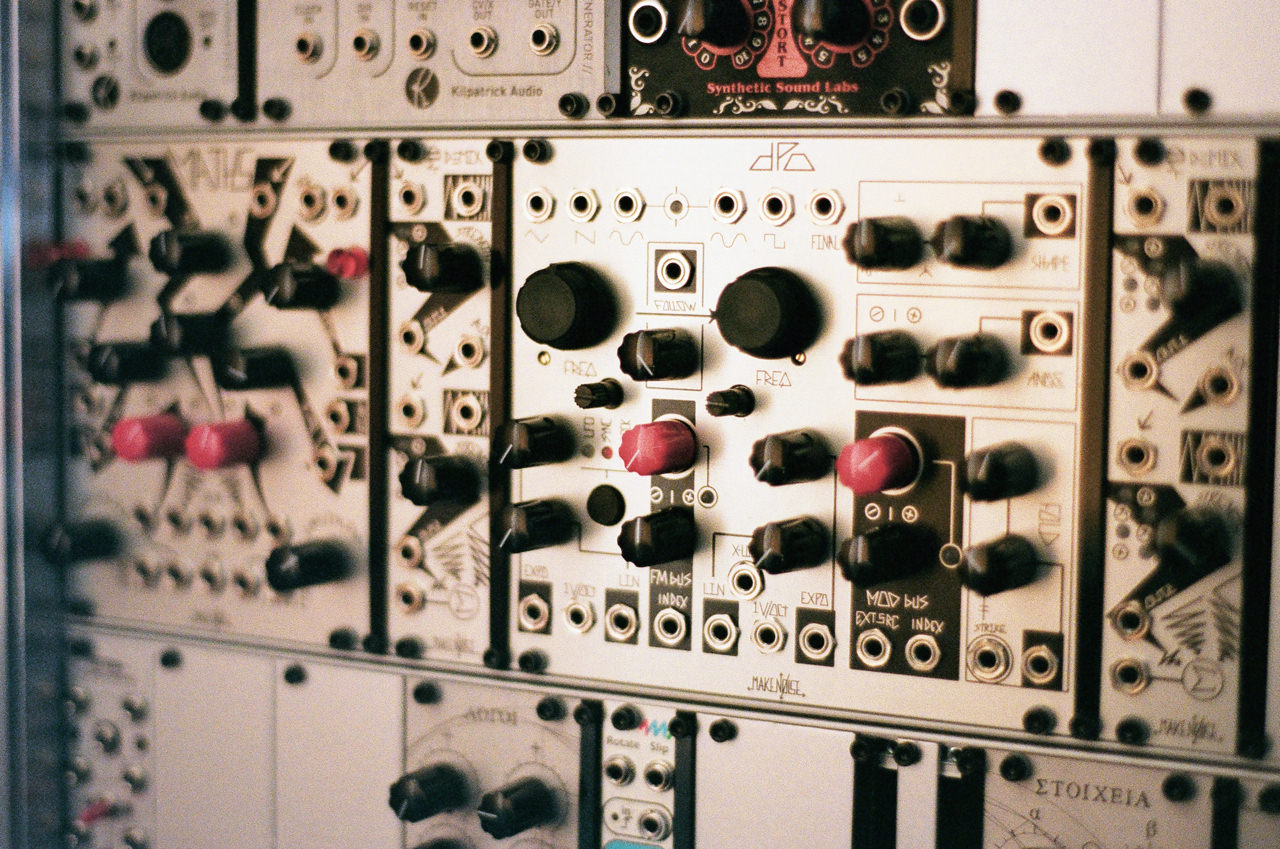
Eurorack modular synths
I don’t have any musical background. You don’t even need to use a keyboard to play all this stuff. Keyboards aren’t important to me. I prefer to program using sequencers or by inputting notes manually and moving them around.
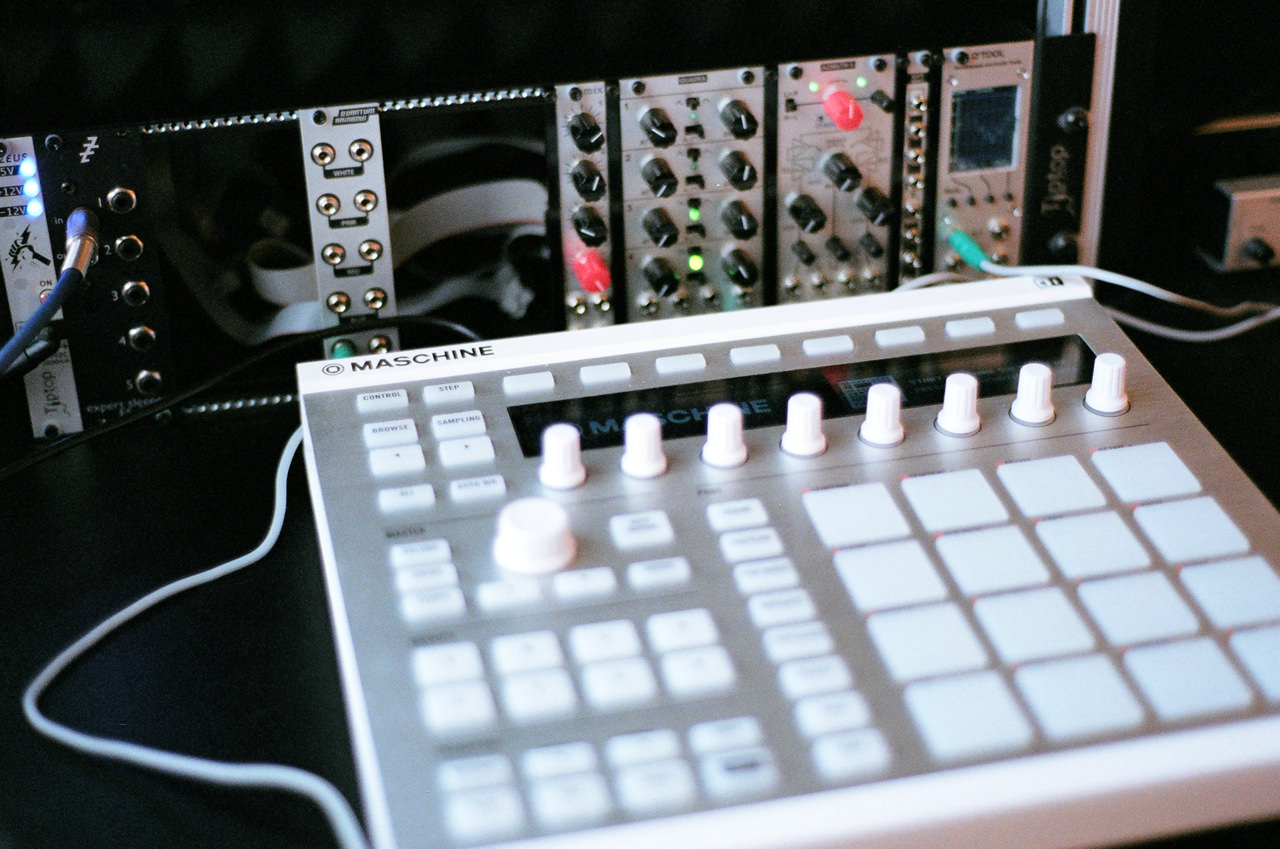
NI Maschine
I do all my drums in Maschine. I love the hands-on nature of it. I tried the Arturia Spark but it only has eight pads so to edit sounds nine to sixteen you have to press three buttons before you can change something like the decay time. That drives me nuts.
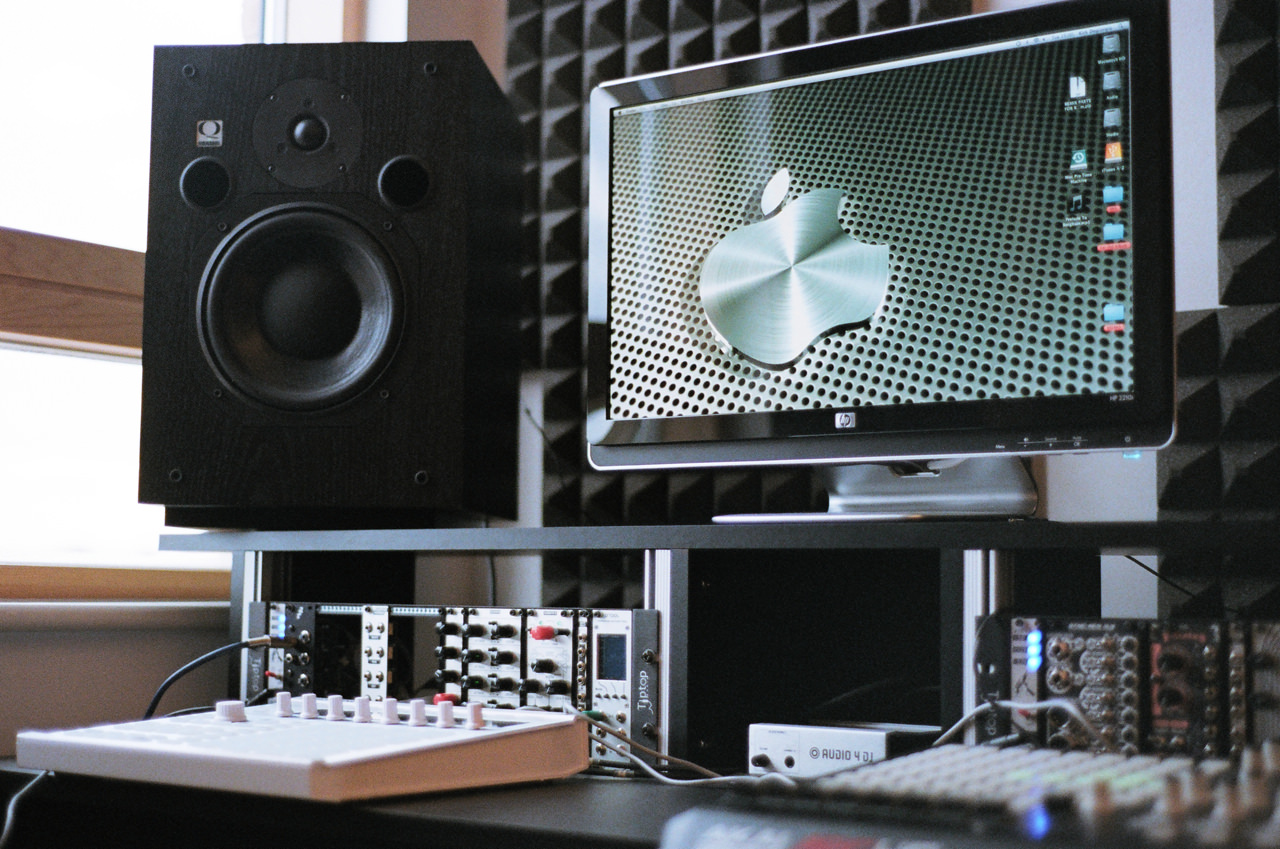
Quested S8s
They're great monitors. Really detailed. I used to live in a bigger house so they're quite big for the room but they're decent at low level. And no complaints from the neighbours. Yet.
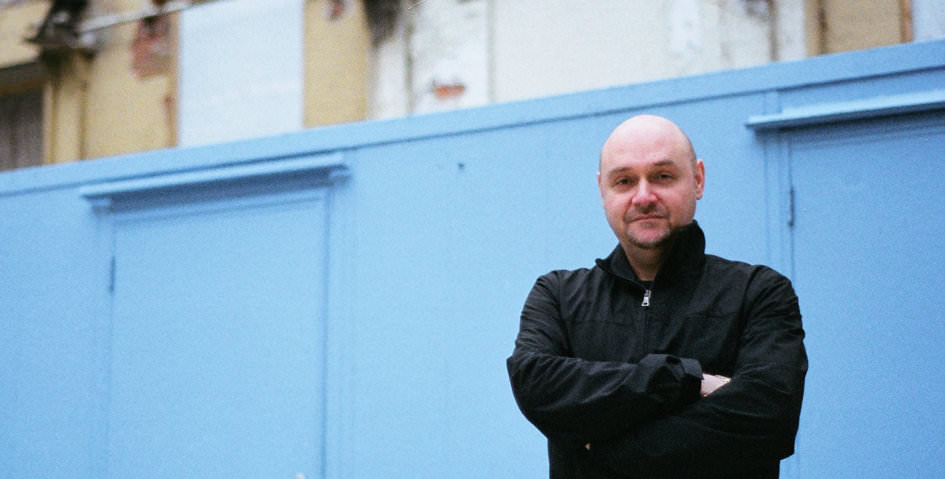
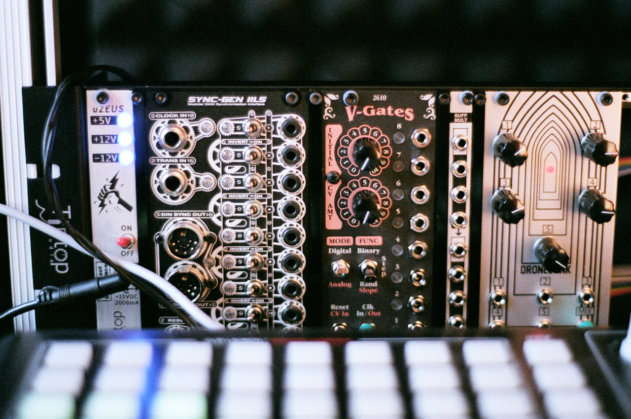
07.22 PM
His aunt outgrew “clubbing” at the age of seventeen?
08.38 PM
Great interview.
10.47 AM
Great inteview as always, keep ’em coming.
09.09 AM
That ma man Atjazz